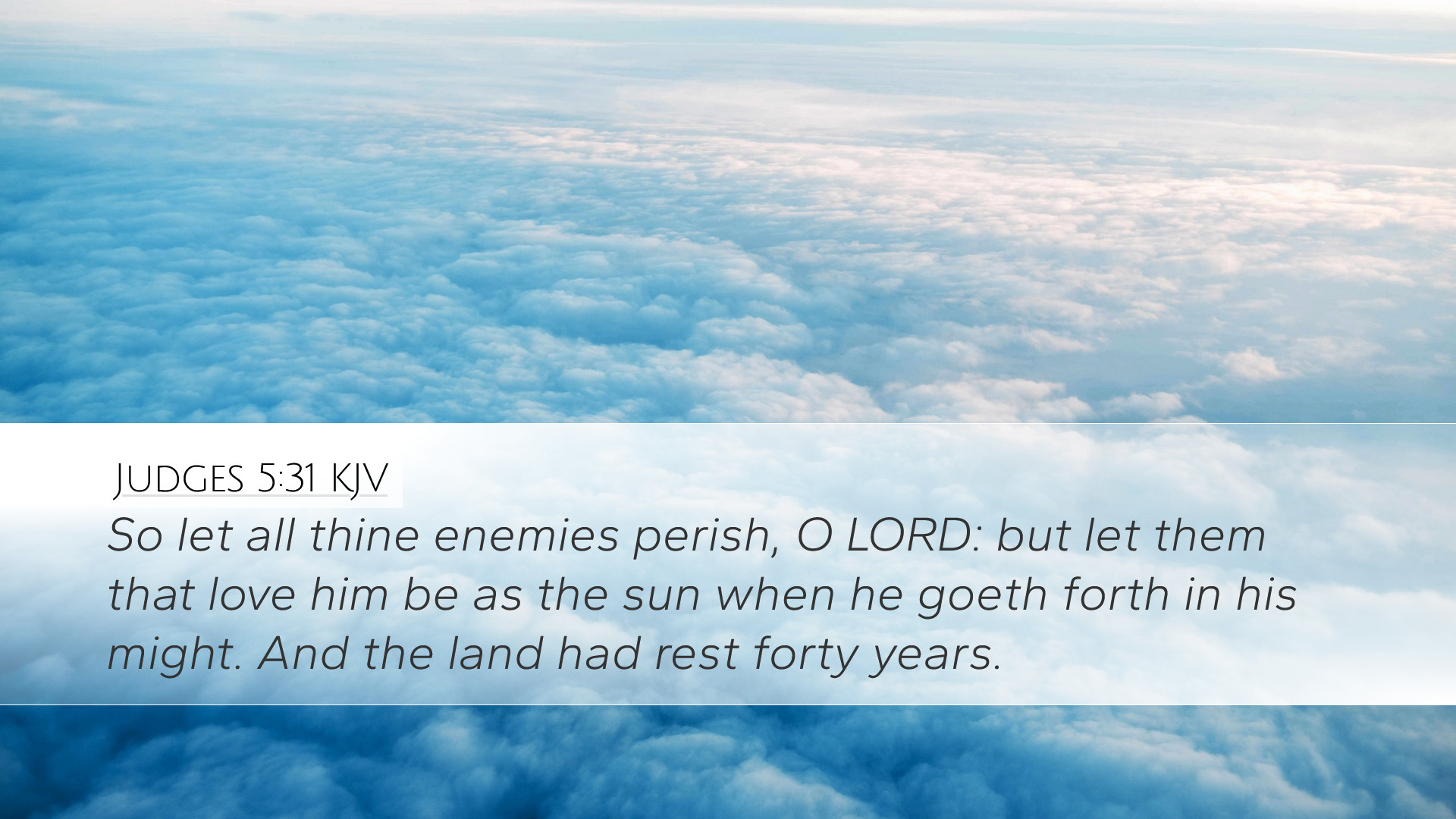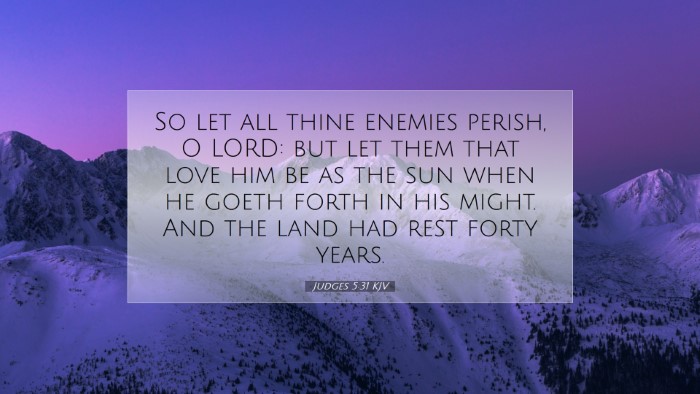Old Testament
Genesis Exodus Leviticus Numbers Deuteronomy Joshua Judges Ruth 1 Samuel 2 Samuel 1 Kings 2 Kings 1 Chronicles 2 Chronicles Ezra Nehemiah Esther Job Psalms Proverbs Ecclesiastes Song of Solomon Isaiah Jeremiah Lamentations Ezekiel Daniel Hosea Joel Amos Obadiah Jonah Micah Nahum Habakkuk Zephaniah Haggai Zechariah MalachiVerse
Judges 5:1 Judges 5:2 Judges 5:3 Judges 5:4 Judges 5:5 Judges 5:6 Judges 5:7 Judges 5:8 Judges 5:9 Judges 5:10 Judges 5:11 Judges 5:12 Judges 5:13 Judges 5:14 Judges 5:15 Judges 5:16 Judges 5:17 Judges 5:18 Judges 5:19 Judges 5:20 Judges 5:21 Judges 5:22 Judges 5:23 Judges 5:24 Judges 5:25 Judges 5:26 Judges 5:27 Judges 5:28 Judges 5:29 Judges 5:30 Judges 5:31

